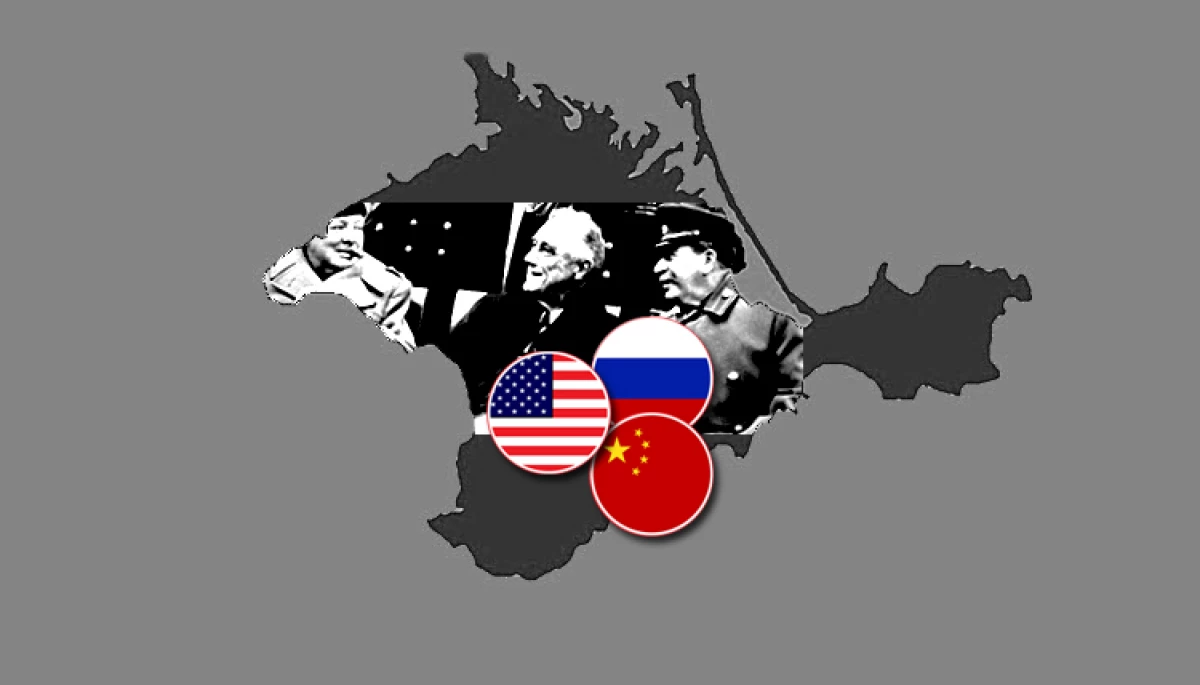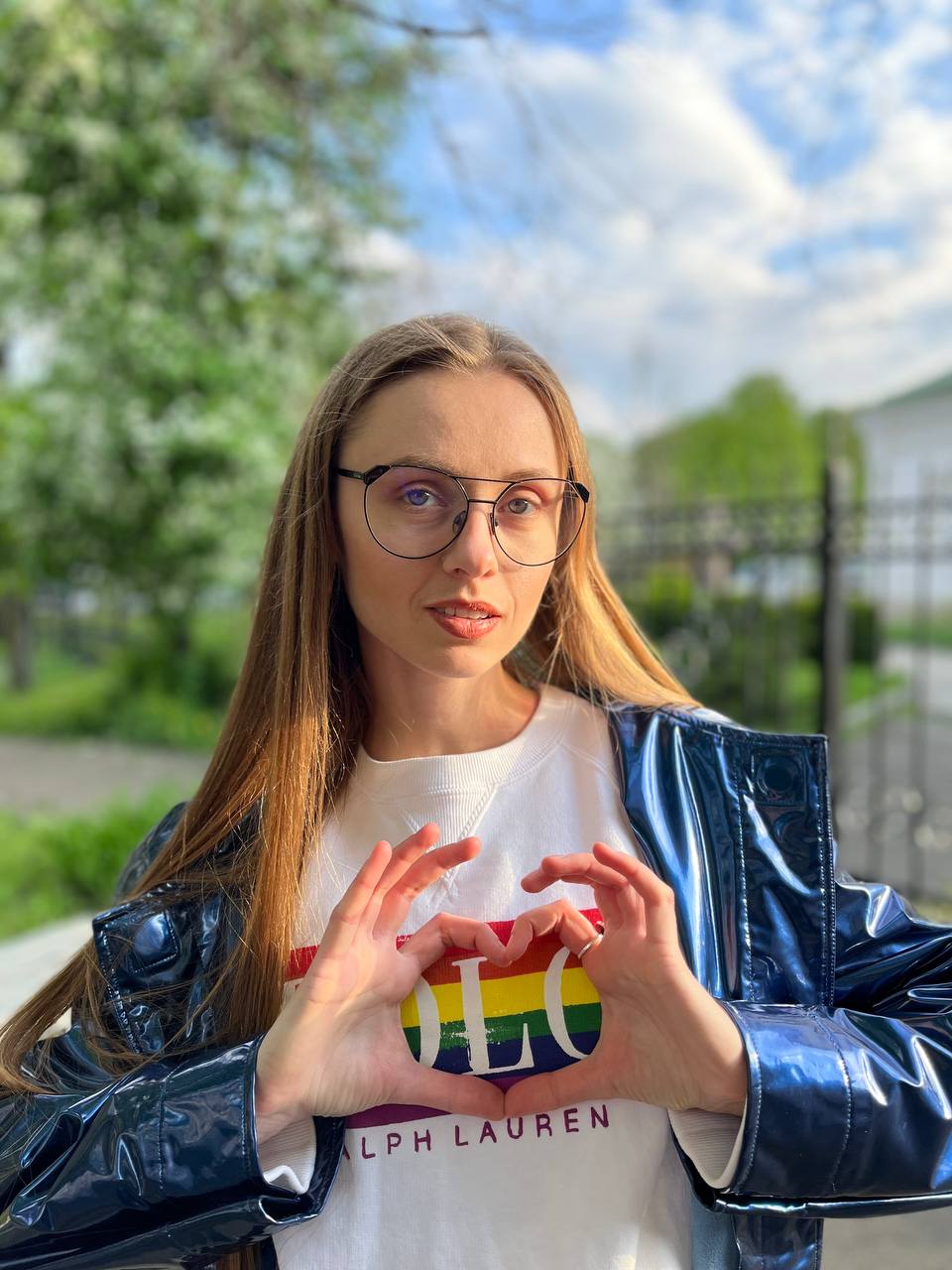Українською читайте тут.
‘The Yalta-Potsdam system has expired’. ‘At Yalta 2, two of the three powers will be anti-Western - the US, Russia and China instead of the UK’. These are the theses spread by the Russian authorities and propaganda on the anniversary of the 1945 Yalta Conference.
This year marks the Eightieth anniversary of the historic Yalta Conference, where the leaders of the wartime Grand Alliance: Franklin D. Roosevelt, Winston Churchill, and Joseph Stalin negotiated the post-war international order.
However, this order has undergone significant transformations, particularly following the dissolution of the Soviet Union and the subsequent Euro-Atlantic integration of states that were once either part of the USSR or within its sphere of influence. The 2014 annexation of Crimea became a watershed moment in the erosion of the Yalta-Potsdam system, signaling a resurgence of great-power politics and the rejection of post-World War II norms.
The National Resistance Center reports that the Kremlin has planned a teleconference on the occasion of the anniversary of the Yalta conference between studios in Simferopol, the UK, France and the US. ‘During the broadcast, the Russian authorities plan to spread messages about Nazism in Ukraine and the obsolescence of the current world order. The enemy is currently looking for partners in the West who will perform this play with them,’ the statement said.
On the occasion of the anniversary, Ukraine’s Foreign Minister Andriy Sybiha wrote on X, “Eighty years ago, postwar order and spheres of influence were forged in Yalta. Today, Putin wants a new “Yalta”, new borders, and spheres of influence. For the sake of a secure world, the aggressor’s illegitimate demands must be rejected. He must be forced into a just peace instead.”
Eighty years after Yalta, the world perceives the conference’s legacy in fundamentally different ways. For the West, it represents a necessary but flawed compromise that laid the foundation for international cooperation. For Russia, however, Yalta serves as a tool to legitimize its neo-imperialist ambitions.
What Began in Yalta Ended in Crimea
The Yalta Conference (February 4–11, 1945) and the Potsdam Conference (July 17–August 2, 1945) established the geopolitical framework of the post-war international order.
First, they formalized a de facto division of influence: Eastern Europe fell under Soviet control, while Western Europe aligned with the United States and its allies. Second, the conferences laid the groundwork for the creation of the United Nations as a mechanism for collective security and conflict resolution. Third, they initiated the processes of demilitarization and denazification, most notably, Germany was divided and restructured to prevent future aggression.
The stability of the Yalta-Potsdam order gradually eroded with the end of the Cold War. The collapse of the Soviet Union in 1991 dismantled the bipolar world order, stripping Moscow of its dominance in Eastern Europe. Former Soviet republics and satellite states pursued Euro-Atlantic integration, further weakening Russia’s post-Yalta sphere of influence.
Between 1999 and 2004, NATO and the European Union expanded significantly, integrating former Warsaw Pact members and ex-Soviet republics: Estonia, Latvia, Lithuania, Poland, Slovakia, Slovenia, Hungary, and the Czech Republic into Western security and economic structures. The accession of these states to NATO and the EU decisively weakened Russia’s sphere of influence, challenging its post-Soviet geopolitical aspirations.
In 2008, Russian forces invaded Georgia under the pretext of protecting pro-Russian separatists in the Tskhinvali region, referred to in Russian as South Ossetia, from Tbilisi’s control. This military intervention represented a direct challenge to the post-Cold War principle of state sovereignty.
Then, in 2014, Russia illegally annexed Crimea, flagrantly violating the fundamental principle of territorial integrity and signaling the collapse of the post-World War II global consensus.
The illegal seizure of Crimea and the subsequent full-scale war against Ukraine definitively dismantled the great-power consensus designed to prevent wars in Europe. These events also exposed the limitations of international institutions, highlighting the inability of the United Nations and Western powers to deter aggression or enforce a lasting, just peace.
Historical Revisionism as a Political Tool
The Russian state and its political elites have increasingly invoked the legacy of the Yalta Conference to justify their contemporary geopolitical ambitions. For instance, in June 2020, on the occasion of the seventy-fifth anniversary of the Soviet Union’s “Great Victory,” Vladimir Putin wrote, “The historical revisionism we are currently witnessing in the West — particularly regarding World War II and its consequences — is dangerous because it cynically distorts the principles of peaceful development established in 1945 by the Yalta and San Francisco conferences. The primary historical achievement of Yalta and the other agreements of that era was the creation of a mechanism that allowed the great powers to resolve their differences within the framework of diplomacy.”
Less than two years after invoking the “framework of diplomacy,” Putin launched a full-scale invasion of Ukraine. Six years prior, he had already annexed Crimea and ignited a war in eastern Ukraine, events that marked the definitive collapse of the Yalta-Potsdam system.
Russian propaganda claims that it was the West, not Moscow, that violated the “spirit of Yalta” by expanding NATO and “undermining” Russia’s security. According to this narrative, the Yalta Conference legitimized Moscow’s control over the former Soviet republics, while their democratization and Western engagement constituted an illegitimate intrusion.
For instance, in an article on the conference’s legacy, Russian Foreign Minister Sergey Lavrov argues that the West “betrayed” the principles of Yalta. He specifically claims that newly appointed U.S. Secretary of State Marco Rubio perceives the modern world order as a tool weaponized against American interests.
“That is, no longer is the Yalta-Potsdam order—with the UN at its center—deemed unacceptable, but even the so-called “rules-based order” is now rejected. Once seen as an embodiment of the post-Cold War West’s Washington-led arrogance and self-interest, it too is being dismissed,” Lavrov wrote, adding, “A return to the previous status quo, which the U.S. and its allies have long advocated, will not happen, as demographic, economic, social, and geopolitical conditions have changed irreversibly.”
Russia’s state-controlled media, TASS, has also manipulated Yalta’s legacy to justify its contemporary ambitions. In an article marking the conference’s anniversary, the Kremlin’s main propaganda outlet wrote, “The Big Three ensured peace on Earth for the next fifty years, and now eighty years have passed. For about half a century, peace was maintained, with only local conflicts, without any major wars in Europe or America.”
In other words, Russian propagandists assert that the “expiration date” of the Yalta-Potsdam system has passed, necessitating new geopolitical alignments and a fresh redistribution of spheres of influence. Moscow eagerly associates itself with the idea of a supposed “New Yalta,” portraying itself as a key player in shaping a revised world order, just as in 1945. However, today’s Russia occupies a far weaker geopolitical position than the Soviet Union did then. It lacks the global reach and influence required to serve as a central pole in a bipolar system.
This narrative, however, remains useful to the Kremlin because it fosters an illusion of retained great-power status. Nostalgia, reinforced by references to historic summits and grand diplomatic moments, serves another strategic purpose: under the guise of advocating for “peace,” Russia seeks to freeze the current war and later expand its territorial claims. The Kremlin argues that, just as the Soviet Union hosted negotiations in 1945 as Hitler faced inevitable defeat, modern Russia, as the USSR’s self-proclaimed successor, has the right to dictate new geopolitical settlements.
Yet Putin’s current strategy bears a closer resemblance to Hitler’s than to Stalin’s. By the time the Yalta-Potsdam system was established, Hitler had already lost his agency on the world stage. Even if one were to compare Putin to Stalin, the latter negotiated from a position of undeniable strength, his military physically controlled the territories over which he claimed influence. Putin, by contrast, lacks such leverage, and his so-called “realities on the ground” do not grant him the geopolitical authority to dictate terms or assert leadership in global affairs.
Imperialist “Yalta-2”
In 2023, Crimean officials declared that Crimea would once again become “the center of world politics,” while local media speculated about the possibility of a modern-day Yalta Conference. Articles with headlines such as “Yalta Conference 2.0: Can Crimea Once Again Stop the Bloodshed?” began appearing, reinforcing the Kremlin’s narrative. According to Moscow, the time has come for a “Yalta-2.”
Kremlin spokesperson Dmitry Peskov stated that Russia is prepared for such a summit — but only under the condition that two of the three dominant powers at the table are anti-Western. In this envisioned “Yalta-2,” China would replace Great Britain, aligning with Russia against the United States.
The 1945 Yalta Conference laid the foundation for modern international law, yet by illegally annexing Crimea, Russia openly disregarded the very principles of international law that it once helped to establish. Instead of acknowledging this violation, Moscow has consistently sought to rewrite history, deflecting responsibility for its aggression onto the West and blaming the United States and NATO for supposedly “provoking” Russia.
With the changing world order, the geopolitical options look like this:
A return to a bipolar world, with global politics returning to essentially Cold War conditions, with two dominant superpowers vying for influence - presumably the United States and China. Russia could move closer to China, forming an authoritarian bloc against Western democracies.
A multipolar global order, with influence distributed among several centres, including the United States, China, the European Union, and emerging regional powers such as India and Brazil.
The world may move away from large-scale alliances, becoming fragmented and regionalised, with great powers becoming regional centres and focusing on influencing their immediate neighbours rather than achieving global dominance.
According to Bloomberg, the Kremlin is eagerly hoping that Putin and Trump will shake hands on a ‘new Yalta’. It would be a pragmatic pact between imperialists that would not be based on any lofty ideological vision other than the notion that force makes right and that coercion is perfectly acceptable.
Collage: Mykola Shymansky, Detector Media (images from pixabay.com and archival footage from ua.krymr.com)



